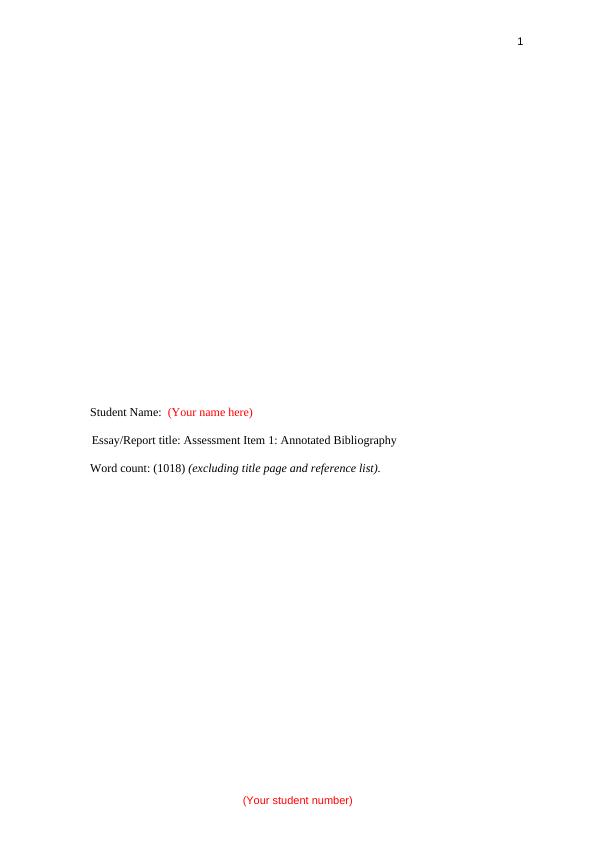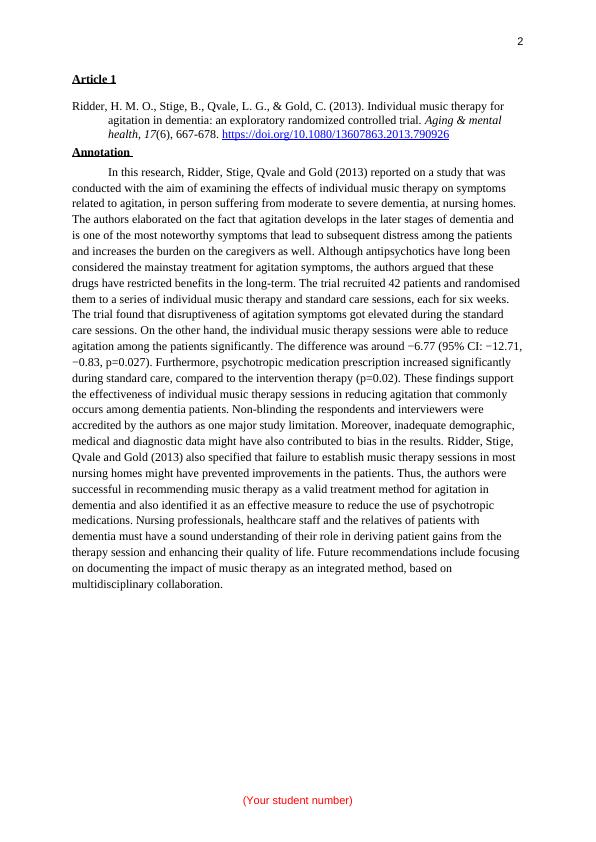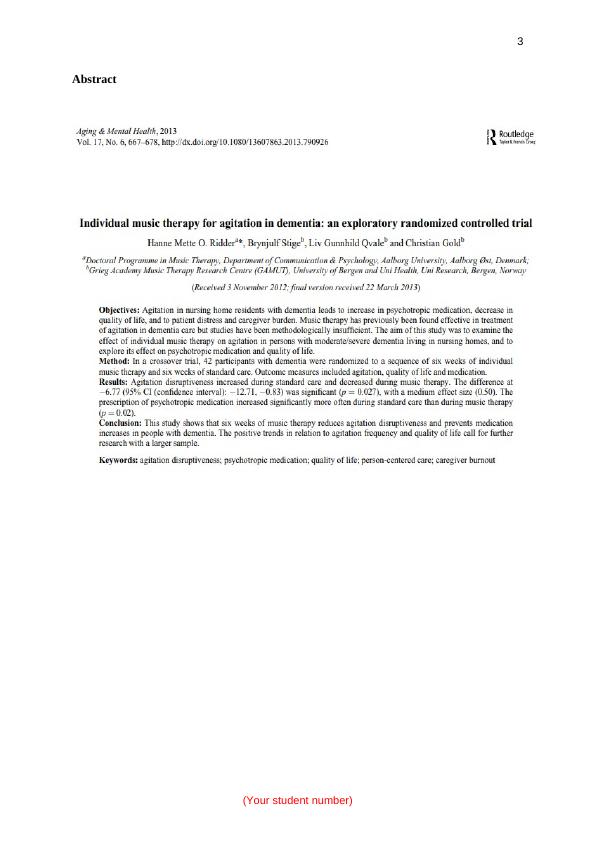Annotated Bibliography on Interventions for Dementia Patients
This assignment requires the preparation of an annotated bibliography for three articles related to nursing, focusing on the development and effectiveness of an education program for surgical nurses. The annotations should include a summary of the article, key sections, analysis of focus and viewpoint, findings, clinical application, and any strengths or limitations identified. The assignment is due on a specified date and should be formatted according to APA 6th referencing style.
Added on 2023-06-09
About This Document
Annotated Bibliography on Interventions for Dementia Patients
This assignment requires the preparation of an annotated bibliography for three articles related to nursing, focusing on the development and effectiveness of an education program for surgical nurses. The annotations should include a summary of the article, key sections, analysis of focus and viewpoint, findings, clinical application, and any strengths or limitations identified. The assignment is due on a specified date and should be formatted according to APA 6th referencing style.
Added on 2023-06-09
End of preview
Want to access all the pages? Upload your documents or become a member.



